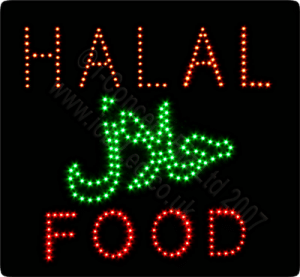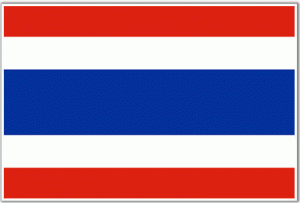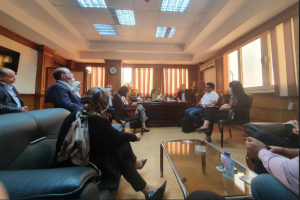Thailand
aims to expand halal food exports by at least 10% a year between 2010
and 2014, helped by new strategies to develop more products for Muslim
markets.

By Joyce Rainat
A panel on halal industry development, chaired by Deputy Prime
Minister Korbsak Sabhavasu, has approved strategies to develop the
industry. They include a plan to strengthen the potential of the halal
industry to meet world standards and conform to domestic demand;
promoting the competitiveness of entrepreneurs and increase Thailand’s
capability in certifying food to Muslim halal standards, expanding
markets and upgrading research and development.
Minister Korbsak Sabhavasu, has approved strategies to develop the
industry. They include a plan to strengthen the potential of the halal
industry to meet world standards and conform to domestic demand;
promoting the competitiveness of entrepreneurs and increase Thailand’s
capability in certifying food to Muslim halal standards, expanding
markets and upgrading research and development.
The targeted products are livestock products. The strategy calls
for five southern provinces – Pattani, Yala, Narathiwat, Satun and
Songkhla – to become the production base for halal products.
for five southern provinces – Pattani, Yala, Narathiwat, Satun and
Songkhla – to become the production base for halal products.
The world’s Muslim population is about 1.9 billion or 29% of the
total world population. Muslim consumers include 8 million in North
America with a market value of $1.75 billion per year, 18 million in
Europe ($2.63 billion), and 200 million in Indonesia ($2.19 billion).
total world population. Muslim consumers include 8 million in North
America with a market value of $1.75 billion per year, 18 million in
Europe ($2.63 billion), and 200 million in Indonesia ($2.19 billion).
The total global halal market is estimated to be worth $635
billion, says Korbsak, adding that Thailand is currently the
fifth-largest halal food exporter, controlling a 5.6% market share.
billion, says Korbsak, adding that Thailand is currently the
fifth-largest halal food exporter, controlling a 5.6% market share.
In 2008, Thai halal exports were worth 5.19 billion baht, up 53.3%
from a year earlier. In the first seven months this year, exports
dropped 26.9% to 2.49 billion on shrinking global consumption.
from a year earlier. In the first seven months this year, exports
dropped 26.9% to 2.49 billion on shrinking global consumption.
In Thailand, halal products are processed in accordance with the
regulations of the Central Islamic Committee of Thailand for Halal Food
Standard B.E. 2544, which covers production plants, food products, raw
materials, employees, transport and storage, distribution and services.
regulations of the Central Islamic Committee of Thailand for Halal Food
Standard B.E. 2544, which covers production plants, food products, raw
materials, employees, transport and storage, distribution and services.



